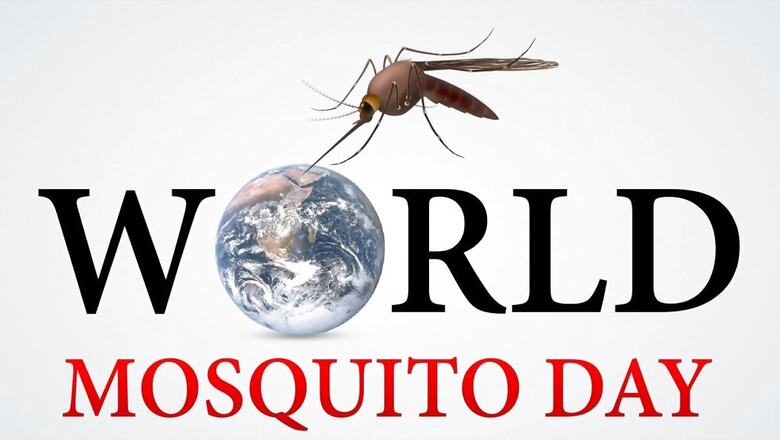
views
World Mosquito Day, observed on August 20, is dedicated to raising awareness about the diseases transmitted by mosquitoes and the efforts to combat them. The day commemorates the discovery by Sir Ronald Ross in 1897 that mosquitoes are the vectors for malaria, which was a groundbreaking finding in the fight against this disease.
The theme for this year’s World Mosquito Day is “Accelerating the fight against malaria for a more equitable world.” The theme stresses the need to address the gaps in accessing malaria prevention, detection and treatment. Timely diagnosis of such disease can save many lives and prevent complications.
Why is it celebrated
- World Mosquito Day is celebrated in honour of Sir Ronald Ross’s discovery in 1897 about mosquitoes being the transmitters for malaria.
- This day raises awareness about mosquito-borne diseases like malaria, dengue fever, Zika virus, and West Nile virus, which have a significant impact on global health.
- It also highlights the importance of preventive measures to reduce mosquito bites and control mosquito populations.
- This includes using mosquito nets, repellents, and eliminating standing water where mosquitoes breed.
- It underscores the need for continued research and funding to develop better treatments, vaccines, and control methods for these diseases.
- World Mosquito Day emphasizes the global challenge posed by mosquito-borne diseases and the collective effort required to mitigate their effects on public health.
Malaria Symptoms
Malaria is a disease caused by a parasite. The parasite is spread to humans through the bites of infected mosquitoes.
Some people who have malaria experience cycles of malaria “attacks.” An attack usually starts with shivering and chills, followed by a high fever, followed by sweating and a return to normal temperature.
Here are some common symptoms of Malaria:
- Fever
- Chills
- Headache
- Muscle, bone or joint pain
- Nausea
- Vomiting
- Cough
- Abdominal PAIN
- Diarrhea
Malaria Treatment
Malaria is a treatable disease. The first-line treatment for uncomplicated malaria usually includes artemisinin-based combination therapies (ACTs). These therapies combine artemisinin or its derivatives with another antimalarial drug to enhance efficacy and reduce the risk of resistance.
In cases of severe malaria, which may involve complications such as organ failure or cerebral malaria, intravenous antimalarials like artesunate or quinine are administered in a hospital setting. Severe malaria requires urgent and aggressive treatment to prevent serious outcomes. After initial intravenous treatment, patients may transition to oral medications to complete the course of therapy.
Treatment regimens are adjusted based on factors such as the patient’s age, pregnancy status, and potential drug resistance in the area. For pregnant women, especially in the first trimester, treatment options are more limited, and medications like quinine combined with clindamycin are often used instead of ACTs.
Prevention from malaria:
- Use insect repellent.
- Wear loose-fitting, long-sleeved shirts and pants.
- Use mosquito net and screens.
- Applying insecticides to the walls and ceilings of homes helps kill mosquitoes that rest indoors.
- Elimination of standing water.
- Stay indoors during peak mosquito activity times, which are usually early morning and late afternoon.
















Comments
0 comment